Gov. Kay Ivey authorizes the state to resume executions
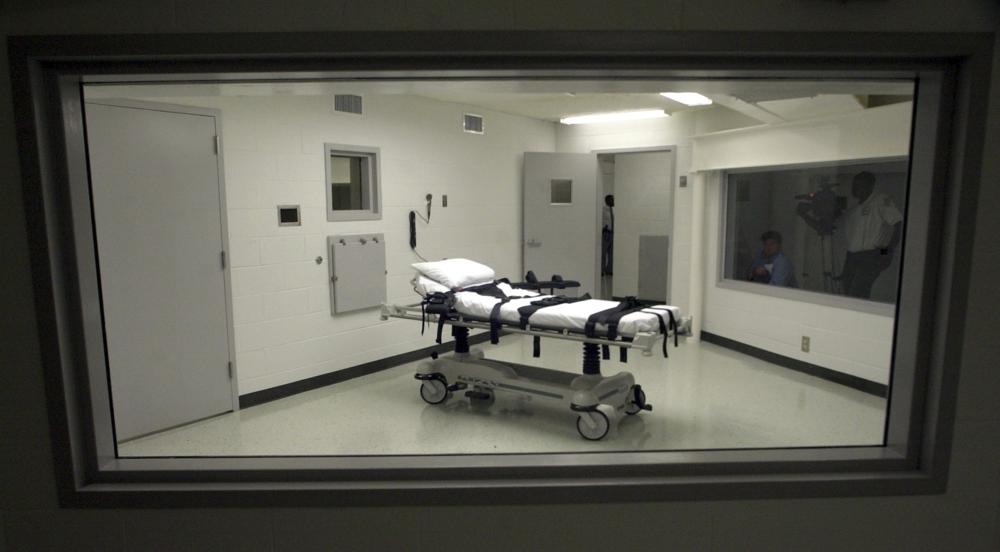
On Friday, Alabama Governor Kay Ivey informed Alabama Attorney General Steve Marshall that he could resume the process of executing inmates awaiting their fates on death row. Ivey made Friday’s decision after Alabama Department of Corrections (ADOC) Commissioner John Hamm informed the Governor that the “top-to-bottom” review of the state’s execution process that she had ordered was complete. Upon receiving the word from Commissioner Hamm, Ivey sent a letter to notify Marshall that he may ask the Alabama Supreme Court to issue an execution warrant for an eligible death row inmate whenever he deems appropriate. Ivey had ordered the review of the process on Nov. 21 after two recent attempts to execute convicted murderers failed. Alabama is currently using lethal injection as its only means of execution. If problems persist with lethal injections, the state could revert to using the electric chair. The Legislature has authorized ADOC to also use nitrogen hypoxia as a method of execution. ADOC has established procedures for using nitrogen to kill by hypoxia. “I am pleased that Governor Ivey and the Department of Corrections have completed their review of their execution processes and feel confident that the travesty of justice that occurred in November of last year will not be repeated,” Marshall said. “As I have made clear, I and my office have remained fully committed to and capable of carrying out capital punishment in Alabama.” Marshall had already expressed his dissatisfaction with the delay and said that, as far as he was concerned, there was no moratorium on executions in Alabama. Marshall said that James Barber will be the first person his office will seek to execute following the governor’s decision to resume executions. “Accordingly, my office immediately filed a motion today with the Alabama Supreme Court to set an execution date for death-row inmate James Barber, and we will be seeking death warrants for other murderers in short order,” Marshall said. “In Alabama, we recognize that there are crimes so heinous, atrocious, and cruel, so exceptionally deprave, that the only just punishment is death,” said Marshall. “Those on death row -as well as their victims- can be certain that I and my office will always do our part to ensure that they receive that just punishment.” Barber was sentenced to death for the murder of Dorothy Epps. To connect with the author of this story or to comment, email brandonmreporter@gmail.com.
Low number of corrections officers in Alabama prisons cause for concern

The Permanent Joint Legislative Committee on Finances and Budgets-General Fund met in Montgomery at the Alabama Statehouse for legislative oversight of state general fund agencies ahead of the legislative session. The Alabama Department of Department of Corrections (ADOC) has just 1,732 corrections officers to guard the state’s 20,643 inmates. ADOC is the second largest agency in the state general fund (SGF) budget. Alabama has an antiquated budgeting system where there are two budgets: the SGF and the education trust fund (ETF). ADOC Commissioner John Hamm was appointed by Alabama Governor Kay Ivey about 13 months ago. He previously served as the Deputy Secretary of the Alabama Law Enforcement Agency (ALEA) and as head of the State Bureau of Investigation. Hamm addressed the budget committees about his request for an additional $122.4 million in funding from the SGF for the 2024 fiscal year, which begins on October 1. The Department of Corrections appropriation in 2023 was $594,647,303. ADOC received $400 million in American Rescue Plan Act (ARPA) funding. Hamm said that the largest component of the ADOC budget is personnel. The lack of corrections officers is a public safety issue. Most importantly, it means that there are fewer guards to protect inmates from their fellow inmates. It is also a problem for the state legally as a federal court has already ordered ADOC four years ago to hire 2000 more guards – and the state has failed to accomplish that task. “One of our court orders says we must hire x number of security staff,” Hamm said. “I don’t know how we are going to make them come to work.” “This is also an issue with other states,” Hamm said.” Texas and Florida have gotten real aggressive on compensation. They are now well ahead of us. Recruiting corrections officers is coming from here. We are competing with sheriffs and police departments. Our compensation is lower and the benefits. Some of them are paying in the $50s and even $60s. We are 50% lower than that.” Hamm said that there have been some signs of progress though, recently. “We had about eight quarters of decline. We leveled off last quarter,” Hamm said, suggesting that this may indicate a turnaround. Hamm said that the Department had 688 vacancies for corrections officers, with just 1732 guards presently on staff. ADOC also has 1168 administrative workers with 264 vacancies. One legislator suggested that ADOC simply train prisoners how to be corrections officers to fill the vacancies. Hamm said that there are APOST standards for corrections officers that would prevent ADOC from hiring former prisoners as guards. ADOC is building two new mega prisons. Hamm said that the mega prison in Elmore County has poured its foundation pad, but now they have to put in the drains and plumbing before construction can begin. “It is on our Draper campus in a 300-acre site,” Hamm said. “The general contractor – Caddell construction – is on site. Soon there will be 800 workers out there. Hamm suggested that sinkholes on the site and drainage had slowed the project. “Site work is ongoing at Escambia County,” Hamm said. “We don’t have a general contractor for Escambia yet.” Hamm predicted that the state would be able to hire a general contractor once they finalized the design at Elmore. That design will then be duplicated at Escambia, saving money. Two legislators asked about the controversial decision to award the prison healthcare contract to a new company that appears to simply be an old company in several pieces of litigation due to walking out on prison healthcare contracts in other states. Rep. Arnold Mooney asked if YesCare was simply Corizon reorganized. “YesCare is a new company,” Hamm insisted. Hamm told the legislators that there are only five companies in the country that provide large-scale healthcare services for prisons and that four of those submitted bids. A committee was tasked with evaluating the four bids, and they recommended two companies. Hamm said that it was his decision to accept the bid from YesCare. “I made the choice of Yes Care,” Hamm said. The Department of Justice is suing the State of Alabama, claiming that the conditions in Alabama’s prisons are so bad that imprisonment in the state’s prisons constitutes cruel and unusual punishment under the Eighth Amendment, and as such imprisonment under the conditions found in ADOC is unconstitutional. To connect with the author of this story or to comment, email brandonmreporter@gmail.com.
State puts prison healthcare problems under a new health care service provider

On Tuesday, the Alabama Department of Corrections (ADOC) announced that YesCare, Corp. has been selected to enter negotiations for the department’s comprehensive healthcare services contract. Inmate healthcare has been a problem in Alabama prisons for years. Alabama Today spoke with a psychiatrist who formerly worked for ADOC treating the inmates/patients. “Care sucked in the late 1990s and early 2000s,” said the doctor, who asked that his name not be used. “It sucked in the early-mid 20teens. It has been going on for 20 years. Guess what? It still sucks!” Alabama Today asked if recruiting physicians who want to treat convicted criminals is difficult. “It doesn’t suck this bad in other states,” the doctor said. “It doesn’t suck this bad at Bryce or at Searcy back in the day. Why must Alabama prison health care suck so bad for so long? Hint: idiots and cheapskates and apathy, mainly.” “I was seeing 36 to 40 patients a day,” the doctor continued. “It was ridiculous.” YesCare was among four healthcare companies that responded to the ADOC’s request for proposals (RFP), which was issued on September 26, 2022. In addition to YesCare’s proposal, the ADOC received submissions from Centurion, VitalCore, and Wexford. “The RFP evaluation committee conducted a thorough and extensive examination of each vendor’s proposal. After careful consideration of the evaluation committee’s recommendations, the ADOC decide to enter into contract negotiations with YesCare based on a combination of quality care and overall cost,” said Commissioner John Hamm. The Southern Poverty Law Center (SPLC) has sued the state in federal court on behalf of several current and former Alabama inmates, alleging that the state does not provide adequate mental health treatment, drug treatment, and healthcare to inmates. The lawsuit, Braggs v. Dunn, was filed in 201allegedlleges that ADOC systemically puts the health and lives of incarcerated people at risk by ignoring their medical and mental health needs and by discriminating against incarcerated people who have disabilities – violations of federal law by a prison system that has one of the highest mortality rates in the country. Ashley Austin is a staff attorney for the SPLC’s Criminal Justice Reform Practice Group. “Alabama must provide constitutionally adequate care for the human beings in its prisons,” Austin said. The SPLC and the Alabama Disabilities Advocacy Program joined the law firms of King & Spalding and Hogan Lovells in presenting evidence that they claim shows horrific and inhumane conditions inside the prisons. The state has been ordered by federal judge Myron Thompson to hire additional corrections officers. The state is also facing a U.S. Department of Justice lawsuit alleging that the conditions in Alabama’s 27 correctional facilities are so inhumane that incarceration in Alabama’s prisons constitutes cruel and unusual punishment and is thus unconstitutional under the Eighth Amendment. The negotiations on the final terms of the contract are expected to take weeks. In its recommendation, the RFP review committee considered the company’s experience and qualifications, delivery of care, program management, support services, staffing requirements, and compensation. The four-year and six-month contract will go into effect on April 1, 2023. YesCare is headquartered in Brentwood, Tennessee. They have more than 40 years of correctional healthcare experience, having served clients and patients at more than 475 facilities across the country. Details of the contract or even the bids have not been released to the public. Once the contract is final, all proposals and the results from the RFP review committee will be public record. To connect with the author of this story, or to comment, email brandonmreporter@gmail.com.
Four former prison officers arrested on ethics, bribery charges

Four former officers at a north Alabama prison have been charged with bribery and ethics law violations, the state prison system confirmed. The four men face charges of using their public positions for financial gain and bribery, a spokeswoman for the Alabama Department of Corrections wrote in an email. The four had worked as correctional officers at Limestone Correctional Facility. All four resigned on November 22, according to the prison system. The prison system released few details about the charges. However, at least some of the accusations relate to contraband being brought into the prison, according to court documents. The charges were filed after an internal investigation by the Alabama Department of Corrections Law Enforcement Services Division, the prison system said. In a separate incident, an Alabama prison captain and a former officer were arrested last month on similar bribery and ethics charges, the state prison system said. Republished with the permission of The Associated Press.
Stacy George warns that understaffed prisons pose a threat to public safety
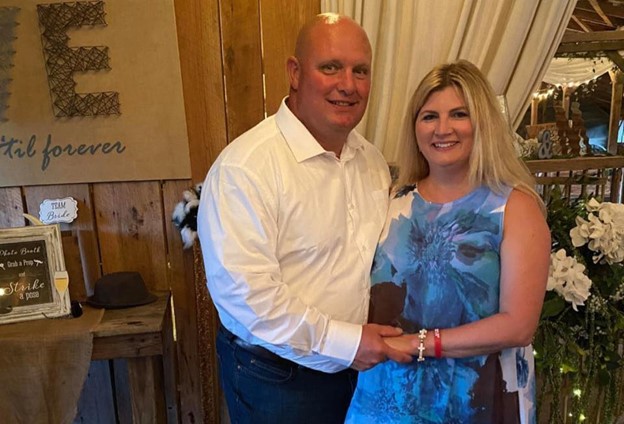
Stacy George is a former Morgan County Commissioner. George, a published author, has twice run for the Republican nomination for Governor of Alabama (2014 and 2022). However, for the last 13 and a half years, George has worked as a corrections officer for the Alabama Department of Corrections (ADOC) – until yesterday. George is just the latest ADOC officer who, overwhelmed by the hours, personal risks, and conditions of the state’s prisons, has left government service. George told Alabama Today on Thursday that he is frustrated by the “inhumane” conditions and is planning a new book exposing the problems at ADOC titled: At what point does punishment become revenge? George takes pride that the fact that in his time in ADOC service, he never had to use force on an inmate. “I have never had to spray an inmate, and I have never had to use a baton on one,” George said. “I usually don’t even carry a baton.” George said that the prisons are so understaffed that he fears that the inmates could potentially take control of one or more of the overcrowded facilities. “At any time, they can take a prison,” George warned. “It is a danger to the officers, the people that work there. The public is in danger.” George charged that often there are only 8 guards on duty at night (and sometimes as few as six) at an ADOC facility that holds 2,300. “There is no telling what they would do to the women in there if they took control,” George said, referring to the women officers that ADOC has hired to work in the prisons. George said that he has been tasked with taking the inmates to the showers even though the facilities are chronically understaffed. “That’s a job for three officers, and I have had to do it by myself,” George said. “When one has to go to the hospital, that is a job for three officers, and I have had to do that by myself. If he gets by me, he is loose in the hospital, and their guards aren’t even armed. I am thinking, what if I have to go to the bathroom while we are there?” “They told me I cannot even provide them with soap,” George continued. “When are we going to get some soap?” George said that he has had to frequently serve as the only guard on an entire cell block – normally a job for three guards and that there have even been shifts where they did not have a guard for each area, so in some of the dorms, the prisoners “just had to police themselves.” U.S. Judge Myron Thompson has ordered ADOC to hire 2,000 more guards – a mission that the troubled system has failed to do despite three years of trying. George said that ADOC depends on its officers working overtime to keep the facilities guarded. “When I go in there, I bring my lunch and my dinner because I don’t know when I am coming out. It could be ten hours, 12 hours, or 16 hours,” George said. “I am going to go to my grandson’s birthday party. I have not seen him for a year, I am going to be able to go to my Church, where they only see me about once a month.” The U.S. Department of Justice has accused ADOC of running the most dangerous prison system in the country and has sued the state claiming that a sentence to an Alabama prison constitutes a “cruel and unusual punishment” and is thus an unconstitutional violation of the Eighth Amendment. “How we treat them is shameful,” George said. “There are only two nurses for 2,300 inmates.” George said that in his tenure at ADOC, he has had to deal with between 50 and 100 stabbings of inmates. “It’s way over 50 – it could be a hundred,” George said. “One time, we came in, and there were blood trails all over the place. It took us four hours to find all the (stabbed) prisoners because there we were so short-staffed.” George said that inmates attempting, or threatening suicide, is a frequent occurrence. “The inmate said he was going to kill himself, and he cut himself with a razor blade,” George said. George then called for help, and the supervisor on the other end of the line asked, “How bad is he bleeding? Do you think he is trying to kill himself, and I said yes.” The inmate did not die. “There are prisoners down on the ground flopping in diabetic comas, and you don’t know whether it is that or a drug overdose,” George said. George said that he was involved in an accident a year ago, and since then, walking up and down the stairs inside the facility has become difficult for him. ADOC knew of his difficulty but did not give him any accommodations, ultimately leading to his resignation. “They have called and offered me two jobs since then,” George said of ADOC. George said that he is holding a press conference in front of the Department of Corrections headquarters in Montgomery on Friday. “I am going to blow the doors off of this system,” George said. To connect with the author of this story, or to comment, email brandonmreporter@gmail.com.
Libertarian candidate for Governor, Jimmy Blake, discusses issues

On Wednesday, Libertarian nominee for Governor, Dr. James “Jimmy” Blake, addressed voters online in a forum hosted by the Jefferson County Libertarian Party at the Mountain Brook Library. Blake said he had recently attended the “Break the Chains” rally organized by the families of prisoners of the Alabama Department of Corrections (ADOC). Blake said that he was moved “When you heard the stories and saw the videos that the families brought in there.” “The people of Alabama are a very decent bunch of people, and I don’t know whether politicians think they will be seen as soft on crime or they think that people just don’t care,” Blake said, urging the state to care for its prisoners better. According to a report by the Trump Department of Justice, the Alabama prison system is the most dangerous in the country. The state is facing a DOJ lawsuit alleging that incarceration with ADOC is an unconstitutional “cruel and unusual punishment,” banned by the Eighth Amendment to the U.S. Constitution. Blake chastised legislators and the Ivey administration for not focusing on the problem. “I think we are focused on sending money to favored contractors,” Blake said, criticizing the state for “Spending $400 million that was supposed to go to the people for COVID relief” to build new mega prisons. Blake said that he favored housing the prisoners in a more humane environment. “They want people to be rehabilitated and not more dangerous than when they went in there,” Blake explained. Even though Blake is running for governor, he still weighed in on the U.S. Senate race to chastise Republicans. “They had a guy who was a small government conservative in Mo Brooks,” Blake said. “They said so many outrageous things about him that were untrue and then chose a BCA lobbyist (referring to Katie Britt). We have a guy who knows what the government is supposed to be doing in John Sophocleus.” Blake said that the Libertarian Party was created 50 years ago when Republican President Richard Nixon devalued the currency by getting off of the gold standard. “A 1964 dime is 95% silver,” Blake said. “It is worth over two dollars today. A 2022 Biden dime is worth ten cents, and in a year, it will be worth nine cents a year from now due to inflation.” Blake chastised incumbent Gov. Kay Ivey for rejecting structural tax changes and what he called the corrupt duopoly of the two major political parties. Blake argued against laws banning marijuana, saying that Prohibition only creates “black markets,” detailing how Prohibition in the 1920s increased crime and violence while also leading to harder alcohol and alcohol poisoning. “You wouldn’t have fentanyl” if drugs were legal, Blake said. “Your liability would be too high.” Blake is a former U.S. Air Force flight surgeon who flew nuclear strike F4 Phantom fighters in Europe during the Cold War. He graduated from Auburn University and went to medical school at UAB on an Air Force scholarship. Blake served eight years on the Birmingham City Council. He also led the RAPS group that opposed the MAPS effort by then Birmingham Mayor Richard Arrington to build a domed stadium and other projects by raising taxes across Jefferson County. Blake is a former chairman of the Libertarian Party of Alabama. He started the first free-standing “urgent care” healthcare clinic in Alabama – American Family Care. After leaving that business, Blake practiced medicine in the Hoover area. More recently, Blake has practiced emergency medicine at rural hospitals. Blake’s wife was killed in a tragic car accident. This is the first time Libertarians have had ballot access in Alabama in twenty years. Blake is challenging incumbent Gov. Ivey. Ivey has led the state since 2017. Yolanda Flowers is the Democratic Party nominee for Governor of Alabama. There are also two write-in candidates campaigning for governor. The general election is on November 8. Voters must have a valid photo ID to participate in any Alabama election. To connect with the author of this story, or to comment, email brandonmreporter@gmail.com.
Families protest prison conditions at Alabama Capitol rally

People with relatives and loved ones in Alabama prisons rallied outside the state Capitol Friday to decry what they described as inhumane conditions behind bars and a parole process that sees few inmates released. “Men are being murdered. Men are overdosing. Men are taking their own lives,” said Eric Buchanon, a former inmate who does prison ministry. “Somebody said, ‘Well, how can we stop people from taking their own lives?’ Well, if you had enough officers operating the prisons, who could monitor these men like they are supposed to, that would help.’” More than 200 people joined the rally outside the Capitol. Tombstones were placed on the white marble steps of the Alabama Capitol to represent the men who died in Alabama prisons from suicides, murders, and overdoses. The rally followed a three-week work strike at many prisons aimed at seeking changes to state sentencing laws and the parole system. Inmates refused to show up for jobs in prison kitchens, janitorial services, and laundries, jobs that keep the prisons functioning but for which the inmates receive no pay. The Alabama Department of Corrections said Friday that two facilities for men continue to have complete work stoppages, and three facilities have partial work stoppages. Inmates and activists have accused the Department of Corrections of using pressure tactics in an attempt to end the demonstration. Officials said the reduced rations and the lack of visits were the result of a prisoner labor shortage. At the Capitol rally, Sandy Ray carried a photo of the battered face of her son, Steven Davis, who died in 2019 after an altercation with corrections officers at William E. Donaldson Correctional Facility where he was incarcerated. “It’s about the things they are doing to human beings,” Ray said about her continued fight for changes in the prison system. She said it’s time for state officials to do the “right thing that they should have been doing all these years.” “If you are going to stay in office, how can you sleep at night knowing (inmates) are sleeping on floors with rats running across them? Roaches are being served with food,” Ray said. The U.S. Department of Justice is suing Alabama over the conditions in its prisons, saying the state is failing to protect male inmates from inmate-on-inmate violence and excessive force at the hands of prison staff. The case is slated for trial in 2024. Alabama officials have acknowledged problems but deny that the living conditions violate constitutional standards. Inmates and family members say that conditions have worsened in recent years despite the attention on the system. The rate of paroles has plummeted in recent years, according to state statistics. The state parole board this week granted parole to just six inmates of the 58 who had hearings, according to a news release Alabama faces a separate court order to add as many as 2,000 officers to man understaffed prisons but has been unable to fill the positions. Alabama Corrections Commissioner John Hamm told a legislative committee this summer that the department has 1,879 officers and 541 vacancies out of 2,420 budgeted positions. Republished with the permission of The Associated Press.
Alabama prisons reduce meals, nix visits amid inmate strike
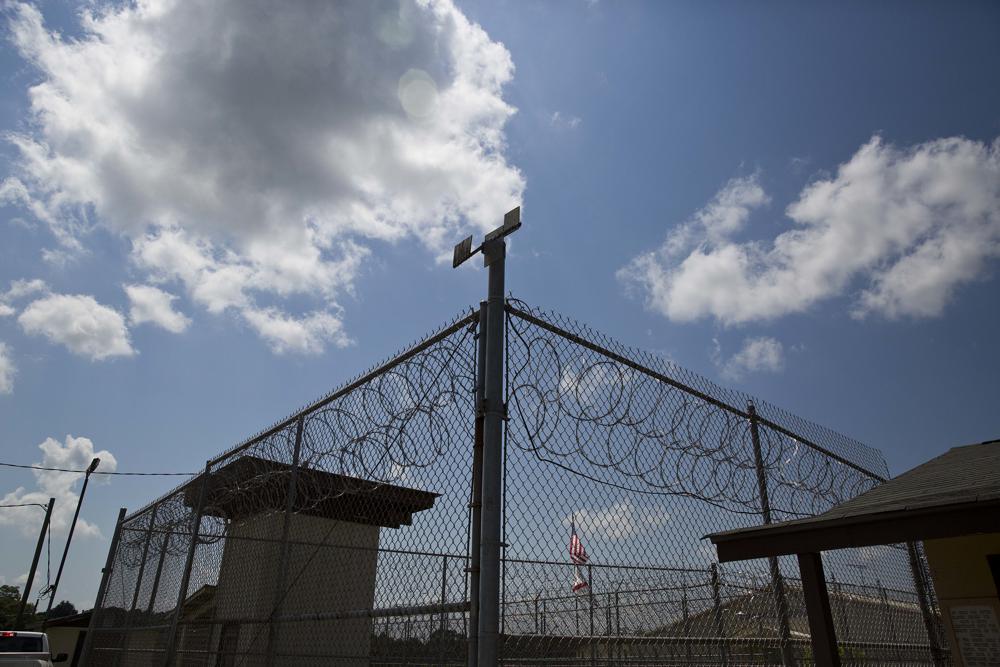
Thousands of inmates in Alabama’s overcrowded prison system are receiving only two meals a day during a prisoner work stoppage that was in its fourth day Thursday, and the agency said weekend visitation also was being canceled. While inmates and activists have accused the Department of Corrections of using pressure tactics in an attempt to end the demonstration, officials said the reduced rations and the lack of visits were the result of a prisoner labor shortage. Inmates provide much of the labor force inside prisons, the department said, so the lockups eliminated one of the three meals that normally are served to compensate for the lack of workers. “This is not a retaliatory measure but logistically necessary to ensure that other critical services are being provided,” the department said in a statement. Photos posted on social media showed brown bag meals consisting of a corn dog or peanut butter sandwich. The prison system said it would return to regular meal service once the strike ends, but it wasn’t clear how long that might take. The department said most of its large male prisons were still affected by the strike on Thursday, and visitation was being canceled this weekend because of the stoppages and their impact on prison staff. “Inmates have been notified and encouraged to notify any visitors,” the agency said. Activist Diyawn Caldwell, whose husband is incarcerated in Alabama, said canceling visitation was “just another mechanism for retaliation” by the state on inmates. She said prison officials also are threatening striking inmates with loss of living space in honor dorms, where conditions often are better than in other areas. “That’s huge in there because you’re taking merits they have earned away from them because they don’t want to perform free labor,” said Caldwell, who founded Both Sides of the Wall, which describes itself as a grassroots organization. Gov. Kay Ivey has rejected demands for criminal justice reforms, including changes to sentencing laws for habitual offenders, calling them unreasonable. Alabama prisons held more than 20,000 inmates in July, when the Department of Corrections issued its latest statistical report, despite being designed for only 12,115 people. The department runs 13 major prisons for men, the largest of which holds more than 2,200 men, and one for women. The Department of Justice is suing Alabama over the conditions in its prisons, saying the state is failing to protect male inmates from inmate-on-inmate violence and excessive force at the hands of prison staff. The 2020 lawsuit alleges that conditions in the prison system are so poor that they violate the constitutional ban on cruel and unusual punishment and that state officials are “deliberately indifferent” to the problems. Alabama officials have acknowledged problems but deny that the living conditions violate constitutional standards. Republished with the permission of The Associated Press.
Alabama prisoners refusing to work in 2nd day of protest

Alabama inmates were in their second day of a work strike Tuesday, refusing to labor in prison kitchens, laundries, and factories to protest conditions in the state’s overcrowded, understaffed lock-ups. Prisoners, including those who provide food, laundry, and janitorial services, refused to show up for work at major state prisons, leaving staff scrambling to keep the facilities running. “They are running a slaughterhouse,” Diyawn Caldwell, founder of the advocacy group Both Sides of the Wall, said of Alabama’s prison system, which the U.S. Department of Justice has called one of the most violent and understaffed in the country. Caldwell’s husband is incarcerated at a state prison. The Department of Justice has an ongoing civil lawsuit against Alabama over conditions in its prisons, saying the state is failing to protect male inmates from inmate-on-inmate violence and excessive force at the hands of prison staff. The 2020 lawsuit alleges that conditions in the prison system are so poor that they violate the ban on cruel and unusual punishment and that state officials are “deliberately indifferent” to the problems. Alabama officials have acknowledged problems in the prison system but dispute the Justice Department’s accusations. The Alabama Department of Corrections confirmed Tuesday that the work stoppage was “still active in most male facilities.” However, the department maintained that “facilities are operational and there have been no disruption of critical services, which include meals.” Family members of several inmates, however, said prisons were not distributing three daily meals and prisoners were given paper sacks containing corndogs or sandwiches. Inmate labor provides a vital role in keeping prisons functioning. “HOW LONG CAN 25 PEOPLE RUN A PRISON WITH 1000, 1800, 2300, etc. PRISONERS?” inmate organizers of the work stoppage wrote in a press statement about the strike. Caldwell said organizers are hoping to persuade federal officials to go ahead intervene in the prison system. She said they are also seeking a number of changes related to release and sentencing such as repealing the Habitual Felony Offender Act, establishing uniform criteria for parole that would guarantee release, streamlining the review process for medical furloughs and reviewing elderly incarcerated individuals for immediate release. Supporters, including family members, delivered the demands to the prison system headquarters after a protest on Monday. A spokesperson for Gov. Kay Ivey told reporters that the demands were unreasonable and thanked prison staff for maintaining facilities. “It is also important for these protestors to understand that a lot of their demands would require legislation, not unilateral action. Some of these demands suggest that criminals like murderers and serial child sex offenders can walk the streets, and I can tell you that will never happen in the state of Alabama where we will always prioritize the safety of our citizens,” Ivey’s office told news outlets. The strike, while not directly related, comes after photos of an emaciated inmate at Alabama‘s Elmore Correctional Facility went viral. Kastellio Vaughan’s sister had posted the photos to Facebook with the message, “Get Help.” The disturbing image prompted outrage and allegation of medical neglect. The prison system said that Vaughan had refused medical assessment and left the hospital following surgery against medical advice “This is horrific,” Ben Crump, an attorney representing Vaughan said in a statement. “Let’s be clear, the State of Alabama has tried to deflect any action or responsibility for Mr. Vaughan’s condition at every turn. The prison system issued a statement Tuesday saying that Vaughn had surgery for an obstructed bowel in August and was hospitalized in September for a complication. Both times he was discharged against medical advice, the prison system said, and has since refused medical assessment and medical treatment. “The ADOC offers medical assessment and treatment to all inmates but does not force them to accept that care,” the prison system said. Republished with the permission of The Associated Press.
State signs prison construction contract, quiet on details
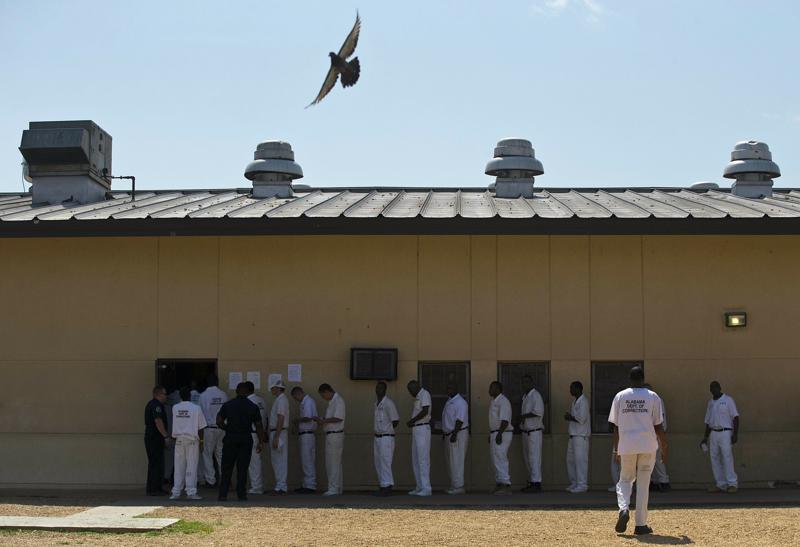
Alabama officials have signed a contract to build a new state prison — part of a $1.3 billion construction plan partly using pandemic relief funds — but have not released many of the details. A spokeswoman for Alabama Gov. Kay Ivey confirmed the state signed a contract with Caddell Construction Co., effective April 15 for construction of a specialized men’s prison facility in Elmore County, “that will provide enhanced medical and mental health services.” “The new facility will create a safer security environment for inmates and security personnel. Our construction timeline continues to remain on schedule,” Gina Maiola, a spokeswoman for Ivey, wrote in an email. The Alabama Department of Corrections on Wednesday declined to release a copy of the contract. A spokeswoman said it needed to be redacted and that would take some time because it is a lengthy contract. The department did not immediately respond to an email seeking information about the cost or the size of the prison. Ivey’s office indicated the prison system should be able to provide a copy of the “publicly available contract documents in the coming days.” Alabama lawmakers this fall approved a $1.3 billion prison construction plan that will use $400 million from the state’s share of American Rescue Plan funds to help pay for the construction. The construction plan included a new prison in Elmore County with at least 4,000 beds and enhanced space for medical and mental health care needs. It also included another prison with at least 4,000 beds in Escambia County, a new women’s prison, and renovations to existing facilities. Lawmakers had expected one of the construction contracts to go to Montgomery-based Caddell Construction. The legislation specified that, instead of the normal bid process, the state instead could negotiate directly with entities that were part of development teams that qualified for the projects under a lease plan Ivey’s administration had pursued but abandoned. Lawmakers said that would save time and build on the work already done. Ivey in October called the construction plan, “a pivotal moment” for improving the state’s criminal justice system. Critics of the plan said it did not address the underlying problems, such as low staffing, and was not a proper use of pandemic relief funds. Republished with the permission of the Associated Press.
AG Steve Marshall opposes new parole legislation led by Rep. Chris England
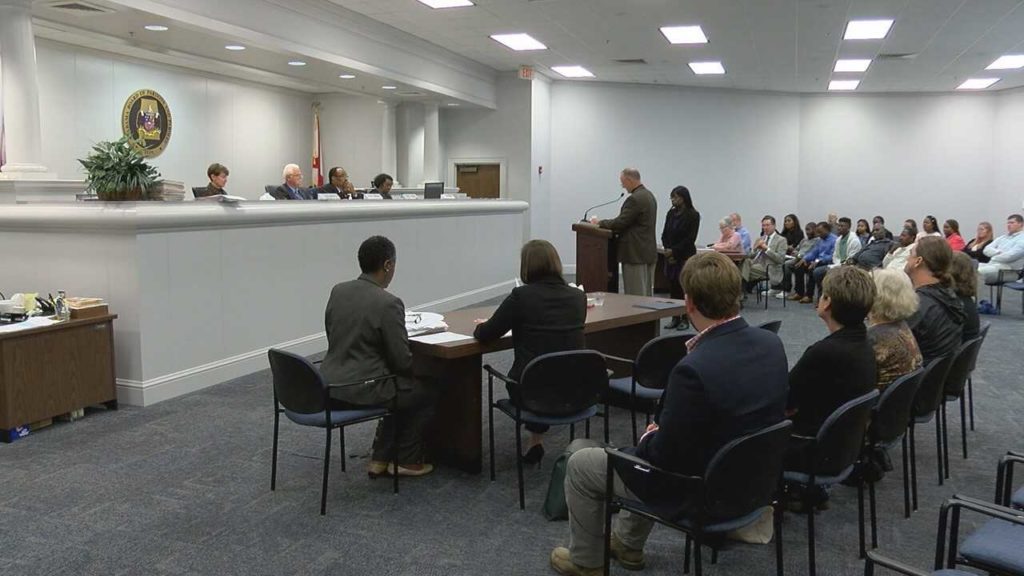
Attorney General Steve Marshall issued a statement in support of the Board of Pardons and Paroles while voicing opposition to a parole reform bill headed to the Alabama House of Representatives on Tuesday. House Bill 57, introduced by Rep. Chris England, aims to create a Criminal Justice Policy Development Council, require the board use parole release guidelines, and revise parole proceedings. “You cannot have a legitimate debate about parole rates without understanding that 80 percent of Alabama’s prison population are violent criminals. Since 2015, near-annual changes to our sentencing and incarceration laws have ensured that dangerous offenders are largely the only ones left behind bars. As a result, we should absolutely expect and demand that parole rates decline,” Marshall wrote. “Every inmate in the custody of the Alabama Department of Corrections was sentenced by a judge to a term of incarceration, but today, a sentence is hardly more than a suggestion. Between good time, mandatory early release, education incentive time and the like, there is essentially nothing left to whittle away. Perhaps that is why the anti-incarceration crowd has set its sights on the Board of Pardons and Paroles—there is nobody else to “blame” for our prison rates, least of all the criminals themselves. “Tomorrow, the Alabama House of Representatives will debate House Bill 57 that would create a new council to “oversee” the development and implementation of various guidelines and risk assessments that the Board would be mandated to use in its decision making. This bill is highly problematic in that it would undermine the Board’s independence—a hard-fought victory of the 2019 reforms—and make it more difficult for the Board to deny parole. I strongly oppose this effort.” Rep. England responded to Marshall’s statement, arguing that Marshall has “misinterpreted” the bill. In an extensive Twitter thread, England expressed the goals of the bill. “HB57 would create the Criminal Justice Policy Development Council to update the inmate classification system; 2) create parole guidelines; 3) adopt a validated risk and needs assessment for felony offenders; and 4) provide quarterly reports to Legislature about the Council’s work,” England wrote. England stated that the bill would require the Board to use parole release guidelines in parole decisions, provide an explanation when deviating from these guidelines, and provide written notification to the applicant of their right to appeal if the denial deviates from the guidelines. “Once the Council’s work is complete, it will dissolve on January 1st 2025. It will not live on in perpetuity to “oversee” the parole board. The pardon and parole board will continue to exist as it does now with the same discretion the members currently have,” England explained. England stated, “Contrary to what the AG says, it doesn’t take away the Board’s authority or independence. It just requires the use of guidelines to inject some objectivity to the process to assist the Board. And, when they deviate from the guidelines, it requires the Board to give a reason.” Rep. England criticized Marshall’s 2019 parole reforms, arguing that the parole guidelines created are largely ignored. He also asserted that the current Chair of the parole board, Leigh Gwathney, will even change the guidelines. “All HB57 would do is give meaning to what he supported back in 2019. It would allow the Legislature to adopt a validated risk and needs assessment to objectively assist in making the final decision. Again, not taking away independence or authority, but giving evidence based help,” England argued. England went on to state that of the paroles granted, 66% of them went to white applicants and that white applicants are 2 times more likely to get released than Black applicants, something he sees as clear “racial disparity.” “Also, after denying damn near every applicant, the Chair will often set the rehearing date off longer than the statute allows. To deny applicants an opportunity for rehearing for as long as possible, she will often BREAK THE LAW to get it done. Apparently that is ok these days.” England emphasized the goal of the Bill is to create oversight that should be in place from the 2019 reforms. “What can be done about it? Well, nothing really. The board has no real oversight. While there is a limited ability to appeal the Board’s decisions, the standard is so high that it proves ineffective to provide any way to reign in the board in the event it becomes necessary, England wrote. “HB57 will create that oversight. It will inject objectivity into the process to ensure due process is in place and that people are treated fairly. Public safety is paramount here because the guidelines are based on evidence based standards instead of subjective opinions.”
3 inmates with COVID-19 dead in Alabama prisons

Three more inmates who died in Alabama prisons tested positive for COVID-19, according to the Department of Corrections. Two men who were incarcerated at St. Clair prison died late last month and tested positive for the illness during a post-mortem examination, the agency said in a weekly update about the pandemic. A third inmate at St. Clair tested positive for COVID-19 before he died, it said. Sixty-two additional state inmates at 17 facilities tested positive for the illness, including three more at the prison where the men died, the department said. That’s about half as many as tested positive the week before, statistics showed. More than 70 inmates and three employees who tested positive for COVID-19 have died. While the department said it offers vaccinations to all prisoners and workers, only two additional inmates at Ventress prison in southeast Alabama had received shots in the last week. More than 12,000 prisoners have been vaccinated in all, it said. Republished with the permission of the Associated Press.

